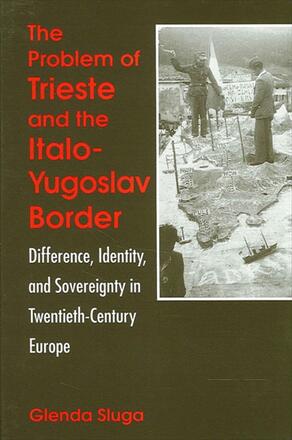
The Problem of Trieste and the Italo-Yugoslav Border
Difference, Identity, and Sovereignty in Twentieth-Century Europe
Alternative formats available from:
Uses the history of Trieste and the Italo-Yugoslav border to examine how representations of difference have affected the politics of sovereignty during the twentieth century.
Description
Focusing on the history of the "problem of Trieste" and the Italo-Yugoslav border, Glenda Sluga provides a framework for writing the history of places from a perspective sensitive to the politics of identity—whether national, ethnic, or gender. For most of this century, Trieste, a port city on the northeastern Adriatic, has been at the center of key European cultural and political questions. Scholars have commonly attributed Trieste's turbulent past to the intrinsic differences between local Italian and Slav populations. Ways of knowing Trieste and Triestines, and the ways in which that population could know itself, have been couched in narratives that reiterate the antithetical differences between Slav Eastern/Balkan Europeans and Italian Western Europeans, and constitute the East as the West's lesser "other."
This book surveys the history of connections between conceptions of difference, identity, and sovereignty during the Hapsburg empire, liberal and Fascist Italy, the First and Second World Wars, the Cold War, and the post-Cold War period. It details the historical meaning and value accrued by those narratives of difference over the century, and their impact on concepts of sovereignty in the realms of national and international politics.
Glenda Sluga is Director of European Studies, Senior Lecturer in History, and Deputy Director of the Research Institute for Humanities and Social Sciences at the University of Sydney. She is the coauthor, with Barbara Caine, of Gendering European History.
Reviews
"Sluga has a thorough knowledge of the relevant historical literature and a good 'feel' for the issues. The question of Trieste's position in the history of the Cold War is theoretically provocative." — Douglas R. Holmes, University of Houston